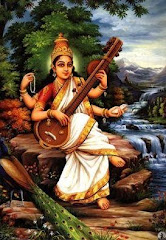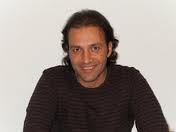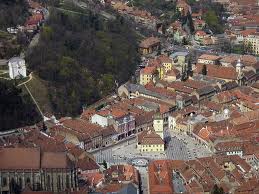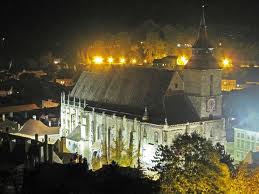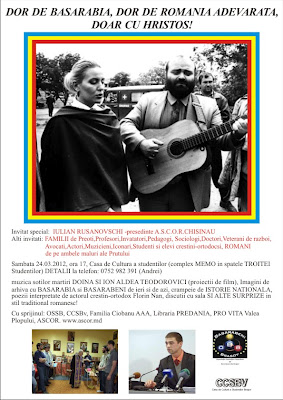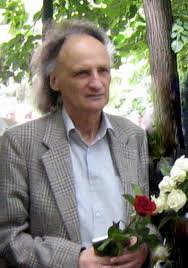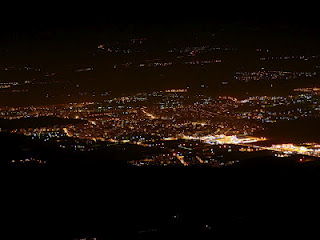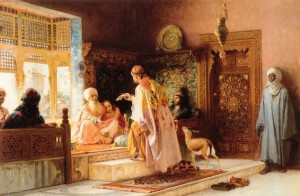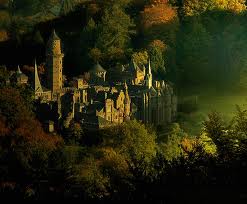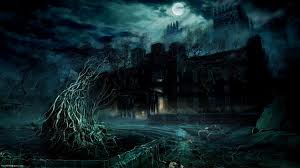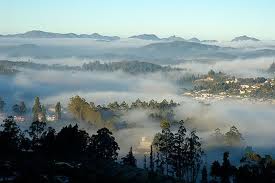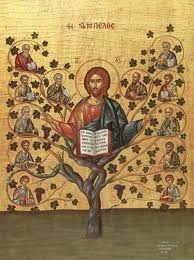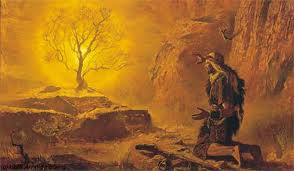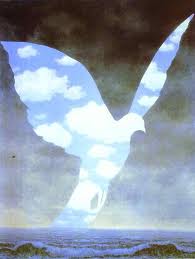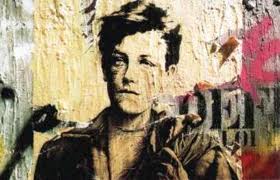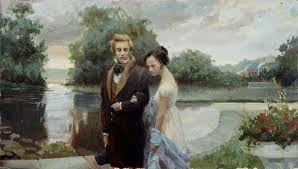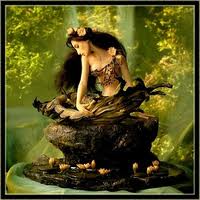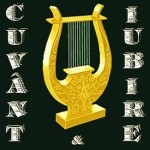
To Esha
My dear Esha, even I am not yet able to reach the Internet, I write to you now, and I will tray to send it by Nana’s help. I asked George and Nana, who, both of them, have access to it, to send you a message, but nobody seemed to hear me, even Nana tried herself to come in touch with Radha and failed! I don’t know why. Today, I discovered a shop with access on net, and I am going to try also myself. This is to excuse myself, but you have to believe me, I had not forgotten you! (‘I had not…” or “I have not”, I am not sure, but if I start making this kind of problems, who knows when I’ll be able to write to you. So, try, please, not to observe the mistakes I make, but to look for the meanings of what I am trying to say, please, please. In fact, this is the first letter I write in English after many years, if not the first at all!)
So, coming back, to the main story, we reached safely at home, after too many hours of travel, 22, I think! Nana was waiting for us in the airport. She was happy for a day or two and after that she got used with us, and more or less, from then on, she neglected us. Do you know another kind of children? Anyhow, I am the happy one, having her, at least over the nights, near by, in her room!
This is the second letter I write to you. The first one, which I didn’t send, was written in the Big Friday, before the Easter, and because that time my mood was another one, I will transcribe it to you: “ I didn’t go to church, hope God will forgive me, even I have not any excuse! I prefer to stay at home and write some thoughts for you. In the Easter, children use to go and celebrate in their parent’s house. When we were young, we use to go to my father’s. Now, he is not anymore, all the other older relatives of both of us are gone, so is our time to wait for our child to be home with us! Only, she seems to prefer to be with her friends, and I don’t blame her! What fun can she have with us? Two old people, each of us with his own thoughts, staring absently at tv! By the way, G is suspected of being diabetic! So, not good food, not cakes, not any drink, even not soft drinks, only water, and coffee without sugar! So, not guests, no child, no cooking, not work! For my spinal cord, seems to be a blessing!
Here we came in the springtime again. The trees started growing leave again, some of them even flowers. It is the narcissus and tulips time, and it fills my soul with joy, hope and colors! It is still cold enough inside the house, but outside is pleasant and the sunlight is a blessing! Sometime is raining, other time is sunny but I don’t know why this year I am not as happy as I used to be some time ago. Is it the age? Three-four years back, I used to thank God for the joy of the new leaves and flowers He blessed me with, for another year! Why am I not impressed anymore now?
The three-four friends I have here, are very happy having me back! They are coming almost every morning to see me, have a bit of coffee and talk about the life, prices, grand children, theirs, I have none, to be proud with! Both of us, myself, and G, asked Nana to do something in this problem, and she said: ”you, peoples, must be mad!” But we still hope! (She also tried to send e-mail to Radha, but she could not. It didn’t go away. She asks Radha to try she first, maybe it will work that way.)
So, this Easter is a pour one. Not the traditional lamb, not because of money, but because I am pity for the pour animal. I’ve reddened some eggs, just to respect the tradition, but nobody will eat them. (I had to throw them away!) Instead of lamb, I bought some chicken and some fish, and I think is o.k. But the spirit of Easter is not anymore! Not smell of cakes in the kitchen, not guests to be waited for, not any expectation, not any surprise! (Do you see how many “not” I used? That time my mood seemed to be very low).
In the time I was there, in India, my pension got higher, and for few thousands more, I lost much more, because I have not anymore gratuity on transport, and some other facilities I had before, and, anyhow, my pension is very small. Doesn’t matter!
I’ve found my book waiting for me at home and that was a reason for happiness. I am not that proud as someone may think, but whoever read it, liked it. Maybe they were polite, or did they tell the truth? Anyhow, the editor asked me for another one, but I am not sure I will do it. At least not now, because I am not in an adequate mood! I am, somehow depressed, I don’t know why. Maybe I am still missing India, maybe I didn’t find yet my own self and my own place under the sun! Who knows? But I am sure, I will cross this miserable period. Soon! I am not feeling in my best health, maybe this is the cause. This is not at all a happy e-mail. But be sure I will leave behind this period. I hope G’s diabetes will not be confirmed. Will know sure after two weeks, when he will repeat the analyses. He made them twice, each time with another result, so there is some hope next time. It is difficult to cook, I don’t know what to give him to eat, and how much! I eat as much as him, but I must eat more, because I lost some kilos, and I have had ten years ago tuberculosis! Just to have an idea how the life is going on here in “liberty”. I was working myself to death, just to gain some money over my pour pension. Luckily, God helped me to get my health back, but I have to be careful.
So, dear Esha, it was not a merry letter. But in the summer, when this springtime depression will pass, I am sure I’ll feel better!
I am missing the flowers, the university garden, the trees, the birds, and even the naughty monkeys!
And I miss you, I am so sorry we couldn’t be together for longer time. But I hope and pray to God, to bring you here sometimes. I don’t know why we couldn’t see each other more times, but it was a miracle we were together, even for short time again, wasn’t it? And perhaps writing is an easier way to reach the other’s soul. I have not restrains and inhibitions in writing.”
Here is the end of first e-mail.
Today is 21st May. G has not diabetes! This is very good news. But still he has to eat less, he must get slimmer. Now he walks all the way to his office every morning, more than an hour! And he is happy! He said he feels like flying! Now he is away, on a trip, in North of the country. By train, not by walk! Nana did not came back from the office, I am “home alone” and spend my time chatting with you! My mood has improved a lot from first e-mail up the page. And I think I’ll continue to write tomorrow, because you cannot imagine how hard and how long time I worked to this one! Kisses for you!
Hello, my friend! It is already 7th June, I don’t even remember how many days have passed from my first two pages! Will you forgive me? It seems to be more a kind of diary than an e-mail letter!
Two months passed since I left India. From now I should be accommodate here. But still I don’t know for sure, how and where am I. I don’t understand why I cannot pull myself together. I feel empty, useless, burden for he others, even I know for sure all these ideas are only in my mind. This is the shock of the oldness, I think. It’s awful.
On 3rd June, we did celebrate 37 years from our marriage! Much more than half of our life! “Celebrate” is a kind of speaking, because it was only in our souls, not feast or friends. Only Nana for a while. But I am grateful to God for every day of all these years, because, good or less good, as they came, all were happy, and we were together, no matter what came on us! And we were lucky to have each other! Even we quarreled now and then, even were so many times without money, but dreaming and hoping.
Not everybody can say those words! None of my friends I have here, can say they are happy. One of them, Cristina, who was like a sister to me, whom I knew from the faculty, had died 8 years ago, after a divorce from a husband which was cheating her, and the mother in low grabbed her two small daughters. She got breast cancer, and after ten years of suffering, she died. I was with her in the last days. (Her ex-husband died before her, also cancer, I think). She was so distressed, that she did not want a priest!
Other one, Felicia, is widow for more than 7 years! She has a son, 30 years old, very talented, film director, with some international awards, Ph.D. in USA. But a very bad man, beating and treating her very bad. She is very unhappy and miserable. I think she is going mad.
Ana, was my friend from the childhood, before going to school She was happy, two children, good, both of them, but in one morning, Dan, her husband, died by hart attack.
And so on…
But I know one, Any, job college, she is happy, but they don’t have children. Maybe is better so!
Elena is not only widow, but her daughter, very good piano player, lost her minds, immediately after finishing the music faculty!
So, I have to be grateful to God, and stop complaining and feeling sorry for myself!
George worked all the day, now is sleeping. He writes a book about the time he spend there, in India, and prepares some papers for the Anthropology Congress, 4th July, in Florence, Italy.
Nana is somewhere, playing bridge.
I am here, with you, after the middle of the night. And I don’t know yet if to send or not to send this e-mail.
July, 6th. My dear Esha, I don’t remember the last day I wrote to you. I am alone in the house. George is now in Florence, for some Congress in Anthropology. And there will he be, till 13th. Nana is also in Italy. She went there since 28th June, in a holiday trip, by car, with three friends. Yesterday they were in Rome, she called me. I hope she enjoys the trip and the places over there. So, I am here only with the dog. Luckily, I have someone to speak to!
There is a Tv channel named PAX, which plays a lot of documentary movies, about different countries, peoples, cultures. Tonight I saw one about Durga Puja in Calcuta. I am impressed by the work of those artisans!
Still I did not send the mail! Even I don’t have and I don’t search for any excuse, I am speaking to you, or thinking to you, almost every day. Don’t get too angry on me, please. Even myself, cannot get an explanation, why didn’t I send the email? I swear I’ll send it when Nana comes back! Love, Nancy.
I cannot sleep, so, I’ll write a bit more.
Being alone, I decided to do some cleansing in the house. Today I was pretty diligence, like a bee! I did wash four washing machines of cloths, went to the market, called someone to repair different things, like lamps, doors, etc. Monday I will have somebody to clean the windows, iron the clots, maybe. I have a full week to make the house look like a drug store. If I am lucky and the day temperature won’t jump over 34 degrees Celsius. The last 4-5 days were over 37! Inside was like hell. I couldn’t move at all. And there is not air conditioner. Only a fan, but I got different pains, and cough. Till last 10-15 years, in this country it wasn’t necessary to have a cooler in the house! I’ll survive the few years I have yet to live on this earth!
I feel lonely, I try to make myself utile, and doing all kinds of things I don’t like to. Instead to read, to write, to paint or draw, or go to movies, or theater, or parks, I cook, wash, and clean, every day, complaining all the time like an old lady, but this is what I am. But it could be worst. At least I am relatively healthy, and I have often days when I am not working at all! And nobody scolds me! But I’ll like to do something pleasant for my soul!
How are Radha and Tara? I saw them so little time! You, also… Missing you, missing them… Why is India so far away?
July 22nd. Again a lot of time had pass and I didn’t write and didn’t send the letter! Shame on me! Many happenings were there, in this time.
First of all, George went to Italy for that congress, you know. He came back safely. Nana, also came home in one piece. I vas very worried for her. Thank God for taking care of her. She has a lot of photos, most of them very good! I’m proud of her!
Secondly, one student from there came here for some summer courses on Romanian language. He is now in another town, Iasi, (reed it Iashee), enjoying the life, I hope! He will come back in Bucharest on 27th this month. I think to send trough him this letter, on a floppy disk. Let’s see!
Maybe you are away this time of summer. Where are you? Is the weather hard over there? Has the monsoon started? I saw some floods somewhere in east. And they screen a serial movie called Mahabharata, I saw only one episode, the third, not a single Indian face! Only black and white! You should see an Arjuna long nosed white male, and Bhima, a very athletic black one! And the ladies are Chinese or some yellow faces. Shiva was a very thin, short, bald and bearded man. Is that “Our handsome Lord from Amattur”, I failed in love after reading “Poems to Shiva” written by some Saints Poets from Tamil, long time ago? I love those poems! I will translate some of them, just for my friends and me!
15 September 2003! See what a friend I am! Forgive me, please! The summer had gone, now it is raining a lot, is cold inside and outside. A very proper time for filing sad and melancholic, for thinking to the “immortality of the soul”! I didn’t write to you for such long time, because I hoped my mood will change. But I realized that it must be my new nature, coming with the age! I became an old sad lady, even I have not always motives to be sad.
In august a student from India came here with a short scholarship, he paid himself the travel expanses!, and after he finished the courses, he stayed for two weeks longer with us. We took him to George’s sister, somewhere near the mountains, and I believe he felt well there: journeys to five or six monasteries wits the car of our nephew, get-togethers with some young fellows, dancing, barbecuing late in night, plums and apples orchards, and so on. Everybody spoiled him! George said he is his own son from India, and I am sure some old country women believed that!
As always, Nana is busy with her job and her friends, she didn’t came with us. But the trip was for a week, so she had a good excuse! We see her only late in night, if we aren’t asleep. There is not much communication between as, anyhow! It is hard for me, but I stopped asking her where, when and with who, so now she must be happier! Luckily, George is standing by me, and sustains my psychic!
Sometime I wonder if this letter will reach you at all! It grows more like a diary than a letter! I do not ask about you and your daughters, about what is going on there, in Delhi, because who knows if there will be an answer some time. It is like a monologue or a dialogue with you, that you, whom I keep inside my heart, like an alter ego. I am talking to you over the days, not only when I am writing. If the language should be Romanian, a lot of thoughts should flow over you, but so, see how unnaturally my writing comes out! And I have not courage to adventure in some hard themes, only weather, only complaining, only self-pithy (which I am very talented to!). I am ashamed! Promise to improve, or, at least to try!
There was a documentary movie on TV, on CNN, about the “Ambassador” car, and I saw Delhi streets and I felt like I was there. A lot of Indian movies are played on 3-4 Romanian channels. It’s a pity I don’t like Indian movies, but still I saw some fragments. In fact, I do not like any movies at all. I have not patience. I like only SF movies, like Star War, or Dune, or like those. And I love The Lord of the Rings! I have read the book, and I love the author for his blessed talent and for his wonderful style. I keep reading again and again from this book, just to enjoy myself, and I don’t stop thanking him, up there, where he is, for the happiness he gives me, every time I open his book, or even only think at it. Don’t say I am mad. That world, unreal, wonderful, is the one I’d like to live in.
28th September. Last evening we, George and me, went to the theatre. In was an event! For long time, my outings are only to the market! It was a play just on my soul. Waiting at Harlequin. Sorry, I do not know the author, an English man. I will ask G, he knows, he is the smart one, in this family! With some old actresses, who came in this asylum, Harlequin, to wait there for their end. The personages and the interprets fitted very well. There were some very good actresses, old ladies whom we know from our youth, and it was a joy and a big pleasure to see them again! And alive! Why do we remember only the old actors, and why they look to us more talented, more dedicated, than the young ones? And why we think there are not any more such great actors like used to be in our days? And why all the good tings seem to be left in the past? It is the age that’s why!
Some nights back I had a dream: I meet Nana’s former boy friend, with some other girl. Yesterday morning, I really met them, and the girl was just the one I dreamed of! Why? Consciously, I never thought about this breaking between them, I believed I don’t mind, but now I agree with Jung, my subconscious digested the trouble, get in touch with the universal subconscious, and brought to me the information I wanted, even if I didn’t realized it! See haw smart is I? Anyhow, Nana seems not to mind very hard. She is gone to mountains, for two days! With some other friends!
5th October. Now I know “why the hell am I so sad”, as I remember a line from a song: on BBC on line, somebody made a statistic and said that from all the world, the Romanians are the most unhappy people!!! So, there is not any shame that I am like all of us. I’ll send this email to you tomorrow, and I’ll write another six months now and then, when you will hear again of me.
All my regards and all the best whishes for the girls and Andre.
Yours friend-sister, Nancy.
10th October. Dear Esha. The e-mail had been sent 4 days ago. I don’t know if it reached you, or somebody else is reading it. I asked Nana to help me, she sent it to Radha, I asked her again to send another one, to get a confirmation, she sent another e-mail on your husband address, now, I cannot do anything else, but wait. Or it would be better if I send it by post? I think that may be the best. Let’s see what happens in the next some days. Here, the autumn started with rainy and cold days. I am like a frog in winter, with stiff legs and hands and neck! The central heating didn’t start, yet, so it is colder inside the house. I don’t dare to use heather, because of the electricity bill! Otherwise, all are going well, over here! George and Nana are healthy and busy, minding their own problems. I’d like to know you received the e-mail, even you have not time for reply. In fact, I don’t even expect one. Love u.
December 8th. Very long time had passed since I wrote above “Love u” Now I have in front of my eyes, on the desk, your very lovely smiling face, I’m looking at you and I feel proud: you are my beloved sister!!! I am thinking at you often enough, especially in the nights, when I want to forget all the over day troubles.
The winter is almost here, even it is not snowing yet, and it is cold, cloudy and depressing. And the bones are aching, and I move like trough the water, slowly as a frozen frog! I’d like to have some news from you. But I don’t mind. I know you are more busy then me. And I can find any answer for all my unasked questions. We are all right all of us. I started working to the diary I kept there, beside every day swiping, cooking, washing and complaining. Nana is healthy and a bit fatter, working and hoping for a trip to Paris in the New Year’s eve, but I don’t thing she will go. She is alone, yet! George has a part time job, teaching literature and journalism in an other town university, only in Saturdays, l50 km away, few money, but I think he should go even without salary, because he is fond of teaching! Over the days he is working in the library, in the nights, he is preparing his lectures. Very busy person! But a kind one!
Dear Esha, it’s Christmas Day. All the work was done, all the things are in their places. I am free! An actor, old friend of George, our age is singing in t.v, old and very sad songs, I listen with nostalgia and try not to cry! So, better I write down some thoughts to you, my dear sister.
Yesterday was a very sad and disturbing day. In the day before it was raining all the time. In the following night, it was very, very cold. In the next morning, it was a disaster! All the doves, which are living in the trees in front and beck side of the blocks, were falling down from the trees, with frozen wings! Some off us went and collected them, fighting with cats and dogs. More than one hundred was saved, but their plums are gone, I don’t know when they will be able to fly again. Most of them are very young. We put them in some boxes in a room destined for washing and drying cloths, which nobody uses anymore. Now we have to wait and see what happens. Till now all are alive. When the weather will improve, they will be released, only those, which cannot fly, will remain to be taken care of. It is very sad. I cried. Today no bird is flying outside!
Yesterday was the day in which the birds were falling in the snow!
We have a nice Christmas tree, with many small lights, which I finished to dress only today, because yesterday I was too busy and in the evening to tired to do it. Nana gave me a nice present, a food processor, I was so pleased, that I forgot to give my present to George. Now, my work in the kitchen will be a lot easier. My present for you is all my love. Merry Christmas, for you and for yours.
19th Jan. 2004. This winter isn’t mine! I don’t recognize it anymore! My winters used to be glamorous, full of joy, pure and white, lighted with bless. No more playing in the snow, or just walking through its whiteness. There is not any joy now to get out in the cold and feel the pure air and let myself covered by the icy sunlight. All is strange to me these days. I am afraid to get out, not to catch some cold, or to break same leg. The snow is dirty, the coldness is too cold, my limbs are too stiff, and my will is too weak. So, why shouldn’t I stay inside and cry for my own pity? It’s easier!
I have some trouble with the liver, for more than one week, feeling tired and lazy. I hate cooking, washing, cleaning!!! Bas! I’d like to do something else, new, but I can’t, so I finish doing nothing! And in the nights I scold myself because I have not any power to start doing something, anything! Of course I cook, wash and sweep almost every day, but this kills me. Where are the years when all seemed easy to do? What a life is this one? I don’t want it!
Today is 5th of March. For such a long time I didn’t write! I am ashamed. When you called, few days back, I was sick, with high fever, and I don’t remember what about we talked, I only know I was very pleased and happy. Now I feel better, it is night, of course, with insomnia and I am missing you. (Just a bit, to light a cigarette). So, let’s start the story. After Christmas an idea started digging in my brain: you remember I told you about the cooking processor, Nana gave me for Christmas present. Because I had not a place to install it, I couldn’t use it. So, I ask a boy carpenter in the opposite block, to make me a cupboard for it. And some shelves to keep diverse things. Till it was to be ready, I thought it would be better to whitewash the kitchen, so, I asked some body else to do it. A lot of money and work. It looked nice, but I needed another lamp, so I bought one. But that didn’t fit too well, so I went and bought another one, which looks better. The first one, I’ve given away to the electrician boy (in fact they are men, but for me, knowing them from their childhood, are still boys). Searching for the lamp in diverse shops, I saw a cooking machine, very nice and costly! I cannot afford it. But my mind started working on this problem. Where from to take the money? I could buy it in installments. But I am 66 years old, so they won’t sell it to me. Only up to 65! Ask George, I told to myself! But I knew he wouldn’t agree, so, in my perversity, I told him that if he agrees, I would cut the smocking to half, and the coffee, too, so I will pay it with my cigarettes. Isn’t that correct? I even started to smoke only 20 per day for a week, or more. So, he agreed! But till the papers were ready, that object was sold, we tried for a t.v. set, the papers weren’t properly signed, after waiting there for more than an hour, we renounced! So long for my cutting the cigarettes!!! If I have not a motivation, I cannot stop. I wanted to, but if I lost the motive, I started the old habit. Believe me, I was very determined, truly. At least I had something to think about. Now here are some more ideas running through my head, but I won’t speck about them yet. Kisses for you!
6th May. Dear Esha, for some weeks I keep speaking to you in my mind, but I could not put myself together to write. No excuses! But in this night I will do it!
One year and one month passed from our departure. A long period. When has it passed? I cannot remember too many happenings of some importance. But I wanted to chat with you a little. We are all right all of us. Nana still unmarried, George still travelling (now is in Morocco, Casablanca, for 7 days, he will come home on 7th of May), I am still on this world, the dog, still alive. To be cynical: maybe is waiting for me. No, do not think I am mad. It was a cheap joke, I now. In fact, I have nothing to complain, I am feeling well with the health, I am not tired (I am taking good care not to exhaust myself. I believe I am a little bit lazy, but who can blame me for this, only me, but I keep quiet, even I accompanied George two times to some functions at the Indian Embassy (I am not enjoying this kind of parties, but wasn’t so bad, in the last).
One old aunt of mine and her husband came the other day to see me. She is 82 and he, 83! I had no courage even to think about them, 4 or 5 years passed without any news from them. I was almost sure they were gone! Because she has liver cancer since long time back, and I don’t know their address. I am very happy for them, and I gained some kind of strength seeing them, so vivid, so full of life, in such a good mood, that I got contaminated. Really! Are they old?. They are. Are they ill? They are. Are they in need, living with only a small pension? Yes, they are. Have they a dead daughter at the age of 36? Yes. Have they a granddaughter and a grandson, who don’t care to visit them? Of course. Aren’t they old enough to think about death, loneliness and pains? Sure. So, where from this serenity, this glad for life? Then, why am I so sad, so thoughtful, so unhappy? Why am I complaining all the time? Nothing goes, as I’d like, nothing seems to be as I dreamed. This is my stupidity. When they left, I gave them one book of mine. Do you know what said? “ Oh, very nice of you to write a book. We will go in the park (public garden, I don’t know the word in English), sit under a tree, because it is so pleasant outside, and read it.” Do you believe it? It was such an invigorating visit. Even now, I still feel good, remembering. And stronger!
It is almost 4 o’clock a.m. I should go to sleep. Tomorrow I must go to the market and buy something to cook, G. comes the day after and, for one week I didn’t prepare anything to eat, Nana is eating in town, I prefer to starve than to move my ass. The short vacation is over, pitifully. But, what the hell, who cares? I’ll stay a bit more. Because I like talking to you, drinking a lot of strong coffee and chain-smoking cigarettes.
Nana has a lot of movies on CD and was kind enough to put some SF on her PC for me, to look at. I spend one full day seeing Dune, and I was very happy, even I have seen it many times before. I saw also Mel Gibson’s movie: “The Passion of Christ”. The part of Mary, Christ’s mother, is played by a Romanian Jewish actress, the most adequate Mary I’ve seen. It was a huge scandal across the world about this movie, form the side of Church, from the side of Jews. But simple peoples liked it. I asked some of my old friends to come and see the movie, and they were very impressed, even crying, and becoming more pious. As for me, I think I am a sort of atheistic person, I have some explanation for this, and in the same time I am afraid not to believe! I am not a church going one. That because we have not this habit, from the communist era. And I don’t like the priests I meet nowadays. I don’t trust them, because they don’t inspire holiness and respect. Then, I cannot see the God as Church wants to make us to. He can’t be the old and frightening man-like person. I feel Him more as your Brahman. And this is another thought that makes me feel uneasy: is it a sin, or is it not? It shouldn’t be, because the God is One, for all people. Anyhow, when I pray, “please, my God, take care of us!” I beg to an unpersonalized God. With the rest of saints, I am ok, I do not negate them. See what hunts me? But is too difficult to speak about this theme in English! And I have no one to speak with in Romanian. And if I read more, then the confusion will be bigger! Only a revelation could help!
Enough for now, it is 5 am. Let’s get some sleep. Bye, sister.
6th Jan.2005 Eight months from last time I wrote in this diary. Too many! Almost forgot the English language.
Today is my birthday. I am 67. So many years and I don’t remember too much of them, as somebody cannot tell a fainted dream. Only few things here and there, few dimmed spots of light, which, from this distance in time, seem to be insignificance. (It’s so difficult to express myself in English, I have to switch the phrase to fit the lack of English words, because I have not patience to search the dictionary. Forgive me, please!)
2nd Feb. First of all I am ashamed for not writing so long time.
I am happy, happy for you and your Radha. Nana brought home the photos and we were enchanted to see how beautiful is she. And Tara. And Radha’s fiancée. And all the new relatives. And Andre. But most of all you were my favorite, I am so glad I could see you, after two years. Now you’ve lost, at least, half of your care, you were carrying for your daughters, on your shoulders. I am, still, carrying mine. As you maybe know, our daughter left the home, moving out with her boy-friend, living by themselves in some rented flat, not too far away from us. Now and then, they come and visit us. But she is calling at least once in each day. It was hard in the beginning, for us, but, time is the best healer, so now, we got used to her absence. For me is much easier, not having too big work to do in the house! But this is the only good thing of the problem. If I feel doing some work, o.k. If I don’t, same o.k. George is a good husband, he isn’t making fuss. But I try my best. Some time I get busy improving the furniture in the house, if I have the necessary money. If not, I wait. And get mad playing “solitaire” on PC.
When I was there, in India, I wrote a diary, in Romanian language, for the friends I have in my country. I worked on it and now it is ready to be published. At the end, I added these few pages I wrote for you, and some photos. In some days – 10 or 15 – the book will be printed. I will send it to you, even it is in my language. George said that it is a good book, he is proud of me!! Of course, it will be not paid author’s right, but I don’t mind. I’ll have some copies to give here and there. About the first book, the fairy-tell, “The Melancholy Prince” two literary magazines wrote some few lines. I am shy, I am not a writer, but one has to try, doesn’t it? So, I will leave the world richer with two books, many porcelain figurines, one very dear girl, and some good deeds. Is that enough? Not to speak about bad things or thinks of mine, but those are personally between the Lord and me.
My old enough dog (he is more than 18 years), is giving me a lot of trouble, he was sick, for one month or more, now is better, skinny and spoiled. But I love him as a member of the family. Is almost blind, totally deaf and I have to feed him from my hand. But I still love him! He is my companion along the days, I speak with him, I am nursing him, cooking, washing, and cleaning after him. But I’m not complaining. He is my loving friend.
My old friends come to see me every day, for a chat over a cup of coffee, talking about politics, weather, grandchildren, (sorry, I have not any, but the others have and are very proud), prices, food and a bit of gossip, just for fun. The evenings are occupied with canasta. Not everyone, but almost.
I couldn’t say I am not happy. I feel at peace. After Nana will marry, I hope sometime this summer, then all the things will be in their own place, then I’ll be ready for whatever is in store for me. My luggage is almost done!
The winter is now at its full “splendor”, with a lot of snow, wind, frost, difficult traffic, cough, bones aches, etc, etc. It had passed more than a month from that unlucky day of 26th December, and still they are showing news from that part of world. So many people died so much grief and sorrow. Why are happening such dreadful events, as the planet does not support us anymore? All kind of people is coming on tv and speak about earthquakes, floods, catastrophes, aliens, apocalypse, scarring the poor old ladies, already with a foot in the grave! I am a kind of a fatalist, what will be, will be. But still more than 200.000 died there, many of them children! Why? I don’t believe God has something to do with it. Karma? Which karma? This is the Nature, the Mother Nature, killing her children, as a sow kills her piglets while turning from one side to the other, without will, without sorrow, without even noticing what she had done.
Sometime I feel sad thinking that we’ll never meet again. I dream you will come in Europe and, happily, in my country. I imagine taking you all over it, in the best places, to show it to you, and feel proud also. But this is a dream. Or, the girls should come here. Nana and her Victor have car, so they really can take them everywhere. But this is another dream. The sad reality is this one, in which I am writing without waiting an answer, just talking to you, that one “You”, I keep with love in my hart and in my mind.
I have your photo just in front of my eyes, I look at it, and feel you just near by, behind my fantasy. Enough for now. I’ll continue in the morning. Anyhow I have to wait for Nana to come here, give the floppy to her, to e-mail it to you, so there is plenty of time to write.
5th Feb.2005. Now it isn’t any more time. Yesterday I was lazy and stressed in the same time. I was waiting for the veterinarian to come for the dog, he (the dog) got some injections with vitamins, he is a bad dog, always ready to bite, and I am the one supposed to grab him. Anny, the friend of mine who brought him, told him I was in India and he liked me telling how is there, and told that he will like to go there, if, of course, will have the money. I promised him a book of mine, to have some answers, because he had so many questions!
It was a misty, snowy day, my vital energy was at the lowest level. And I had to act as Birsingh, if you remember him, sweeping the entire house, dusting, washing dishes and cooking some food in Indian style, (that only because I kept you in my mind!). Anyhow, I am good at excuses, am I not?
Today the children are coming, I am excited, I’ll do all the cleaning again, but today is a sunny one, so I feel stronger and able to do whatever is necessary without complains.
Nana already sent some photos to Radha, hope you’ve seen them.
In this time in which I wasn’t writing to you, George was in trips in Argentina, France, Italy, for I don’t know what kind of congresses, on govt.’s money, of course. Otherwise he would have two-three lives to pay that entire amount! Such are some people: lucky! In the same time, I don’t envy him, I wouldn’t go for anything in the world. After each trip he writes a book! For his own self, this is a selfish good thing. And proudly! You’ve heard him specking about Mihai Eminescu, our most important and beloved poet, who wrote a Sanskrit Grammar in 1886. He published the first part of it, (there are three), two weeks back, with the help of some young Romanians, with studies in India, and he is very happy. And proud!
I think I’ll continue to write to you now and then, because it makes me feel in a good mood. Even my letters are not entirely understandable. But the whish and the soul I lay down in them are more important.
Now I’ll write for Radha some words, out of my hart.
Dear Radha, you and Tara may consider yourselves like my daughters also, I saw you growing up and I love you, as you were mine. So, anytime you are in Europe and you want to visit Romania, please come like to your mother and sister and home, together with your families.
I wish you a very happy family life, a loving and careful husband, the strength to confront the life with all the good and the less good things you’ll meet along the path. Be kind, lovingly and forgiving each to other. Never go to sleep scolded. These are my pieces of advice, which worked in my long married life and your mother’s also. You’ll say I’m old-fashioned lady, so be it, but keep in your mind. In rest all the best for you and your husband to be.
Luv u my friends, all of u!
Rodica Anca

